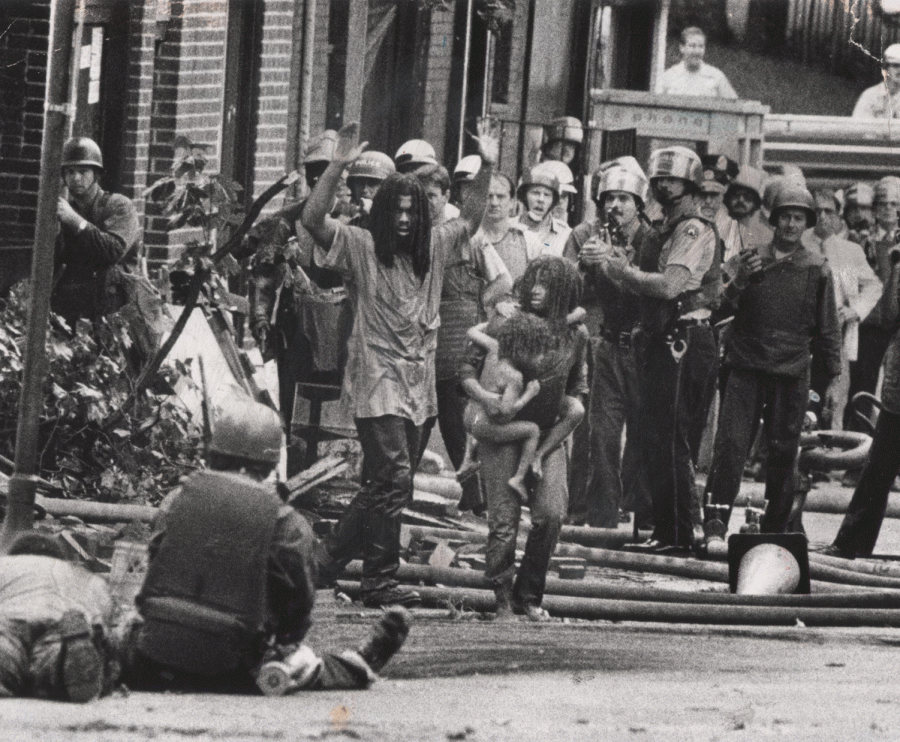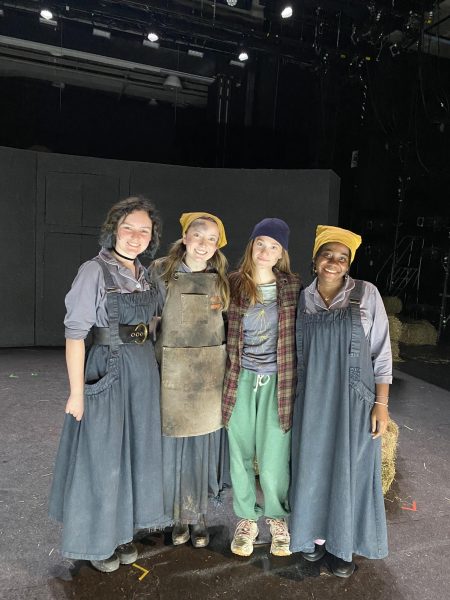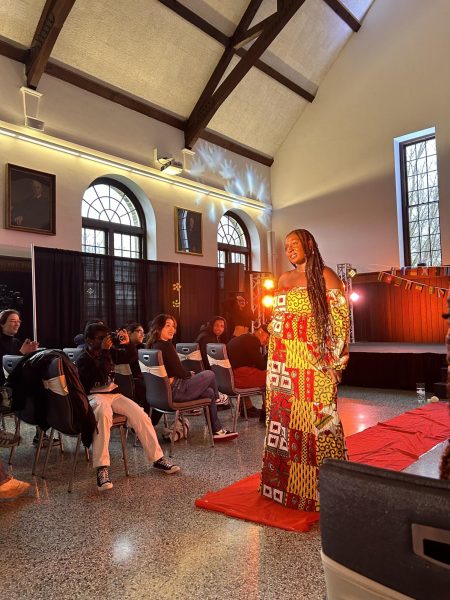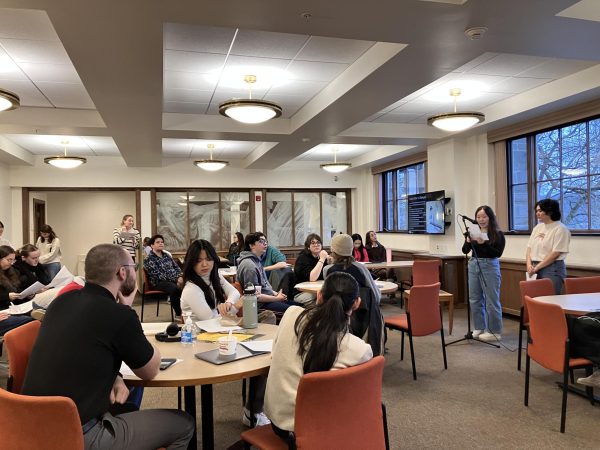“Let the Fire Burn” Documentary Explores Radical Movement of MOVE
It was five o’clock on a brisk Friday, February 13, as students, faculty and other Hamilton locals shuffled into the Golden Auditorium for the screening of Jason Osder’s 2013 documentary “Let the Fire Burn.” The film, winner of multiple awards including Best Editing in a Documentary Feature and Best New Documentary Director at the Tribeca Film Festival, recounts the longtime confrontations between the radical urban group MOVE and the city of Philadelphia. Unusual in its form, the documentary is comprised entirely of archival news coverage and interviews that diligently depict the events leading up to the tragic death of 11 people on May 13, 1985. The film underscores the intersection of technology, identity, police conduct and freedom of expression, calling into question the existence of America’s most fundamental values.
In 1972, John Africa founded MOVE, a “back-to-nature” black liberation movement that professed disdain for new technologies and called for a return to simpler lifestyles. Members of the group wore their hair in dreadlocks, shunned new technologies and promoted a raw food diet. Originally based out of a commune in West Philadelphia, MOVE quickly faced opposition from neighbors and city officials. In 1978, tensions came to a head as the police, responding to a neighbor’s call, engaged in a deadly shootout with MOVE members. Officer James Ramp was killed, and nine MOVE members were convicted for his murder.
Following the shootout, MOVE shifted its headquarters to a new commune in West Philadelphia. Tensions quickly rose again as city officials blamed MOVE’s street broadcasts for a number of health hazards and other code violations. The division between the two sides culminated in yet another shootout in which six kids and five adults were killed, leaving only two surviving witnesses from MOVE. The controversial order to “let the fire burn” led to a long judicial process that ultimately ended in no convictions.
Tragedy prompts reflection. In seeking a culprit for the events that unfolded, it is important to understand the facts. MOVE’s fundamental ideology was one which rejected technology on the premise that it “hurts” children. MOVE also believed that if children were never exposed to the “differences” between black and white, or rich and poor, there would be greater harmony and peace in society.
Millennials, often referred to as the “technological generation,” are all too familiar with the notion that technology can be harmful. Just this past semester, the Colgate community was shocked and outraged by the anonymous racist remarks that were posted on Yik Yak. Many argued that these racial remarks were representative of a larger issue of diversity and inclusion on campus. The ability for anonymity on these social media sites provides people with a platform to quickly say what is on their mind without contemplating the repercussions of their statements. Organizations like MOVE highlight the potential pitfalls of technology and force us to question its value as a positive force in society.
Osder’s film also brings to the forefront the issue of police conduct, something we continue to grapple with as a nation today. Can police truly act without prejudice in situations of immense pressure? It is hard to know the answer, and opinions will inevitably vary. But regardless of which side of the debate you fall on, it is important to acknowledge that our similarities as human beings outweigh our differences.
“They are people who have feelings who are no different than you and I,” reflected a former MOVE member in footage that Osder presented from the jury. By “letting the fire burn,” the authorities failed to show sympathy for the people in that house.
Osder’s documentary largely focuses on the court trials featuring the officers, fire department, MOVE members and jury involved with the 1985 tragedy. We are reminded of the long, drawn-out nature of such trials, as seen today in the case of Michael Brown and of the Muslim students killed in North Carolina. Although reaching a verdict is necessary, assigning blame does not resolve the fundamental issues underlying these confrontations. America, a country founded on freedom, democracy and equality for all, has born witness to countless clashes that seem to cast doubt on the existence of such ideals. MOVE represented a fair and peaceful movement that was unfairly dismantled by people who were supposed to be defending the very ideals they were endangering.







